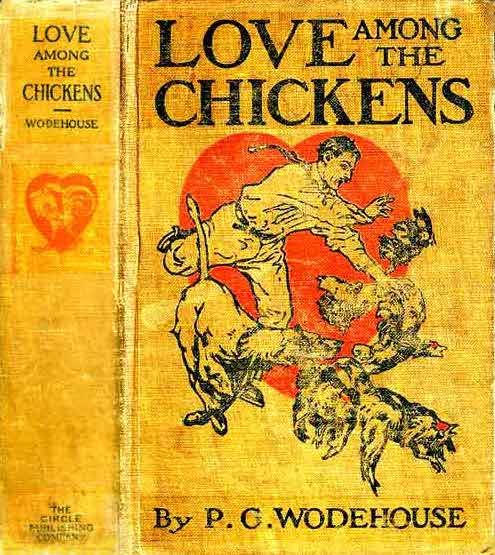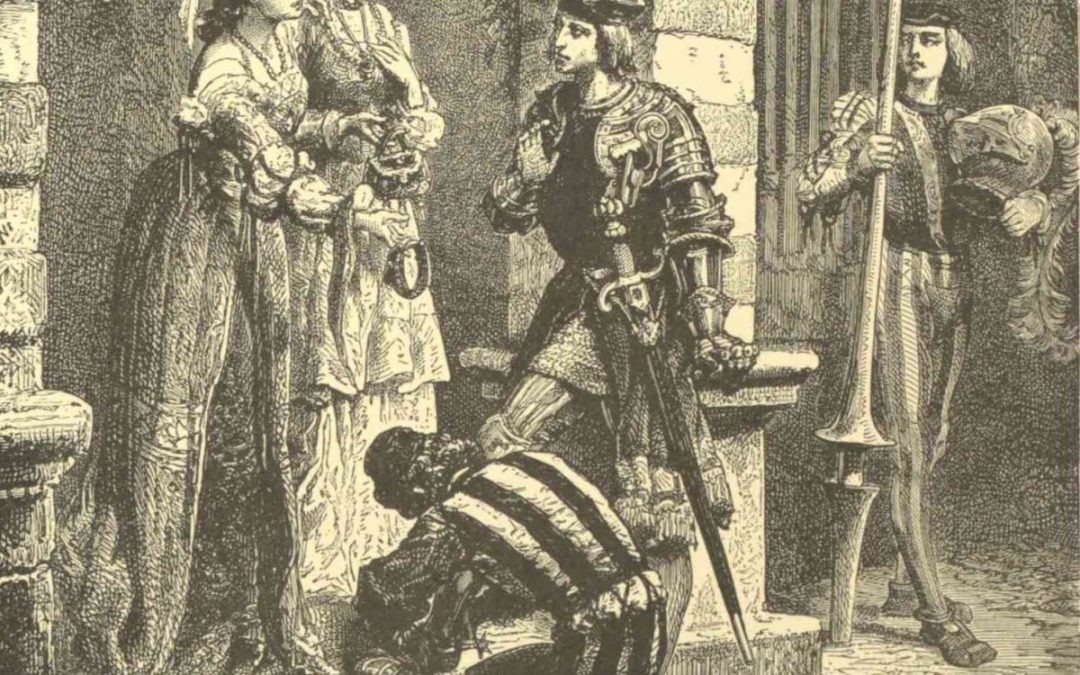
by Richard Subber | Aug 4, 2024 | Book reviews, Books, Joys of reading, Language
“Each work is new.”
Book review:
The Eye of the Story: Selected Essays and Reviews
by Eudora Alice Welty (1909-2001)
American short story writer and novelist, Pulitzer Prize winner
New York: Random House, 1977
355 pages
The Eye of the Story is lush, literate, filled with almost languid richness.
I can only imagine being so well read that I could recognize all of her references to other writers and the vast literature of novels and short stories. I envy the breadth of her engagement with the world of fiction.
I’m more interested in what she has to say about writing.
“We who encounter words used in certain ways are persuaded by them to be brought mind and heart within the presence, the power, of the imagination” (p. 134).
“Each work is new” (p. 135). Welty is talking about novels, but this also is true, so true, of poetry. She observes that, in the fiction of her contemplation, “words have been found for which there may be no other words” (p. 137).
“The imagination has to be involved, and more—ignited. How much brighter than the symbol can be the explicit observation that springs firsthand from deep and present feeling…” (p. 139).
“It is through the shaping of the work in the hands of the artist that you most nearly come to know what can be known, on the page, of his mind and heart, and his as apart from the others. No other saw life in an ordering exactly like this” (p. 144).
I find affirmation in The Eye of the Story. Welty declares that writing is an art that uses the literally infinite array of words in sequence to create a spectacular, unique exhibition of what’s in the writer’s mind and in her heart.
“Each work is new.” I believe that each poem is unique. Each engaged reader takes a new step on new ground each time he reads the poem.
The poet opens a new window in her mind each time she takes the quill in hand.
* * * * * *
Book review. Copyright © Richard Carl Subber 2024 All rights reserved.
A poem about the right thing
…and the lesser incarnation…
“Vanity”
Above all: Poems of dawn and more with 73 free verse poems,
and the rest of my poetry books are for sale on Amazon (paperback and Kindle)
and free in Kindle Unlimited, search Amazon for “Richard Carl Subber”
* * * * * *

by Richard Subber | Jul 7, 2024 | Book reviews, Books, Human Nature, Joys of reading, Language
Who doesn’t love Bertie Wooster?
I happened on a 1982 review of a biography of P. G. Wodehouse, and I can’t resist believing that the reviewer is a hatefully well-bred person.
Prof. Samuel Hynes very incautiously permits himself to label old P. G. as
” . . . the greatest trivial novelist in literary history . . .”
Egad.
Is he talking about Sir Pelham Grenville Wodehouse (1881-1975), the remarkably gabby genius who created Bertie Wooster and Jeeves?
Is he talking about the guy who makes us love the incurably erratic Wooster? who makes us worshipfully respect the very properly domineering Jeeves who can’t hurt a fly, knows nearly everything and saves Bertie’s bacon every time? who makes us stiffen, suppressing cries of delight, as we absorb the adjectival artistry of the whole bloody Wooster/Jeeves madhouse?
Hynes goes so far as to declare that Wodehouse “created a world without real problems and without human depths.” If you’ve read any of Wodehouse’s work, you know that ain’t true. There’s a bit of Bertie’s passion and despair in all of us, and Jeeves divinely makes it possible for everyone around him to be human.
There’s just one word too many in Hynes’ summary of Sir P. G. Wodehouse: “the greatest trivial novelist.”
I think you can guess which one it is.
If you want to, click here to read all of Hynes’ comments about Frances Donaldson’s 1982 biography, P. G. Wodehouse.
* * * * * *
Book review. Copyright © Richard Carl Subber 2024 All rights reserved.
Home Team: Poems About Baseball (book review)
Edwin Romond easily hits another homer…
Writing Rainbows: Poems for Grown-Ups with 59 free verse and haiku poems,
and the rest of my poetry books are for sale on Amazon (paperback and Kindle)
and free in Kindle Unlimited, search Amazon for “Richard Carl Subber”
* * * * * *

by Richard Subber | Jun 29, 2024 | Book reviews, Books, Joys of reading, Language
…the fastidiously chivalrous Sherlock Holmes…
Book review:
The Complete Sherlock Holmes Vol. II
by Sir Arthur Conan Doyle
Christopher Morley, Preface
New York: Doubleday & Company, Inc., 1953
821 pages
Sherlock Holmes never tires of being a marvel, and Doyle’s prose never ceases to entertain. One other thing: Jeremy Brett is my favorite TV Sherlock Holmes, you can pick your own favorite.
Every time I pick up this collection of Holmes adventures, I wish that I had picked up Volume I somewhere—I can’t remember how I acquired this slightly battered copy of Volume II, I’m doing my best to take care of it so I can pass it on when I find a young reader who wants it. My grandchildren are candidates.
I certainly won’t entertain the conceit of naming one of the Holmes stories as “my favorite” because there are too many utterly delectable candidates. Some I like more than others: “Three Pips” comes to mind.
In this Complete Sherlock Holmes I decided to re-read “The Adventure of the Second Stain.” It offers a typical Holmesian maze of fact, conjecture, and potential suspicion. In that context, it’s straightforward enough, and it’s a brisk story with appealing turns. I’m drawn to the final paragraphs which reveal a fastidiously chivalrous element of Holmes’ persona, in his solicitous treatment of Lady Hilda Trelawney Hope. Holmes meant it, twice over, when he said “I am sorry for you, Lady Hilda. I have done my best for you.”
You can read all about it.
* * * * * *
Book review. Copyright © Richard Carl Subber 2024 All rights reserved.
Book review: To Serve Them All My Days
by R. F. Delderfield
A beloved teacher,
I think you know this story…
Seeing far: Selected poems with 47 free verse and haiku poems,
and the rest of my poetry books are for sale on Amazon (paperback and Kindle)
and free in Kindle Unlimited, search Amazon for “Richard Carl Subber”
* * * * * *

by Richard Subber | Jun 25, 2024 | Book reviews, Books, Human Nature, Joys of reading, Language
the good folks prevail
Book review:
Saint Martin’s Summer
by Rafael Sabatini (1875-1950)
Pinnacle Press, 1909
270 pages
Saint Martin’s Summer, published in 1909, is a historical romance. This is Sabatini’s signature style. Think of it as a very high-toned beach book…
Spoiler alert: if you think you’re going to get a big helping of heaving bosoms and sweaty ravishment, maybe you should pick another book…
If you are familiar with Sabatini’s novels or his genre, you already know that knowing the ending—that is, anticipating with confidence how the good folks will prevail—is not necessarily an obstacle to full enjoyment.
Consider my most recent reading of Saint Martin’s Summer.
Grenache is the diffident, honorable cavalier sent by the Queen in Paris to contrive the rescue—effect the “enlargement,” do you love the language tones as I do?—of Valérie, the sweetest damsel you can imagine, from her desperate affairs of the heart in the godforsaken backwater of Dauphiny.
The designing Dowager, the feckless Seneschal, the callow son (Marius), and the worldly and unfaithful son (Florimond)—and believe it or not, too much money and power—round out the cast and the motive forces in Sabatini’s completely predictable and marvelously fulfilling mainstay of Romance literature.
Did I mention love? In Saint Martin’s Summer, you will relearn the potency of plighted troth, the lonely loyalty of unrequited love, the degradation of love in the minds of the loveless, the blossom of unexpected love in the heart of a forlorn girl, and the slowly rising heat of first love in the nobly bewildered and barren soul of an older man, who suddenly realizes that he can welcome a better life with an eager bride who is suddenly ready to be a woman.
I guess, technically, I had to mention “spoiler alert” at the beginning of this review. If you’ve read this far, I think you normally don’t pay attention to spoiler alerts, or, in this case, you didn’t mind.
I like to re-read Sabatini (e.g., Scaramouche) because I know how the stories are going to end,
I know what the lovers are going to say,
and I like the way Sabatini tells a story.
————————————————————-
Here’s my first take on Saint Martin’s Summer, after my first reading:
Jason Bourne would be bored in Dauphiny.
Dauphiny is a sleepy, rural French province, but there is occasional sword play, and some moat diving, so Bourne wouldn’t be bored all the way to tears…
Let’s just face up to it, in your classic Romantic novel about 18th century French dowager marquises and blundering bounders and dashing heroes and cherishable maidens and fat, simpering seneschals, you’re going to get more talk than titillation, and more argument than action. So be it.
Sabatini deftly creates his tale of principled, introspective people trying for success, both villainous and otherwise.
His characters have deep appeal—they’re always trying to do the right thing, or at least trying to do a bad thing the right way…e.g., Grenache knows he must save the girl, and he knows he will love her deeply…
They care deeply—about the ones they love, about their success in a milieu that maximizes opportunity for deception and ultimately minimizes the prospect of getting away with a betrayal or self-dealing or moral weakness.
Sabatini is a colorful storyteller,
and he tells a great story about things that count.
* * * * * *
Book review. Copyright © Richard Carl Subber 2024 All rights reserved.
Book review: An Empire on the Edge
by Nick Bunker
The British wanted to win
the Revolutionary War,
but they had good reasons
for not trying too hard…
As with another eye: Poems of exactitude with 55 free verse and haiku poems,
and the rest of my poetry books are for sale on Amazon (paperback and Kindle)
and free in Kindle Unlimited, search Amazon for “Richard Carl Subber”
* * * * * *

by Richard Subber | Jun 9, 2024 | Book reviews, Books, Joys of reading, Language, Poetry, Reviews of other poets
Milking cows and dad music…
Book review:
A Sense of Wonder:
The World’s Best Writers
on the Sacred, the Profane, & the Ordinary
Edited by Brian James Patrick Doyle (1956-2017)
Maryknoll, NY: Orbis Books, 2016
192 pages
If Brian Doyle thinks you’re a good writer, ‘nuff said.
Most likely you’ll recognize at least a few names among Doyle’s collection of “the world’s best writers.”
In A Sense of Wonder, you can go straight to Mary Oliver (“Do You Think There Is Anything Not Attached by Its Unbreakable Cord to Everything Else”), or Pico Iyer (“A Chapel Is Where You Can Hear Something Beating Below Your Heart: I Came to the Chapel at the University as the Light Was Failing…”), or Paul Hawken (“Healing or Stealing? The Best Commencement Address Ever”), or, of course, Doyle himself (“The Late Mister Bin Laden: A Note”).
I especially like Connor Doe’s “Perfect Time: A Note on the Music of Being a Dad,” and if you’re not a dad, and you read it, you’ll start wishing right away that you could be one.
My choice for best “feel good” selection is
“An Elevator in Utah: On How Children Make Despair Look Stupid.”
Reading it creates the strangest urge to learn how to milk cows.
* * * * * *
Book review. Copyright © Richard Carl Subber 2024 All rights reserved.
Book review: Shantung Compound
They didn’t care much
about each other…
by Langdon Gilkey
My first name was rain: A dreamery of poems with 53 free verse and haiku poems,
and the rest of my poetry books are for sale on Amazon (paperback and Kindle)
and free in Kindle Unlimited, search Amazon for “Richard Carl Subber”
* * * * * *

by Richard Subber | May 28, 2024 | Book reviews, Books, Joys of reading, Language, Tidbits
“…turn the unspeakable into words…”
Book review:
Bird by Bird: Some Instructions on Writing and Life
by Anne Lamott
New York: Anchor Books, Doubleday, 1994
239 pages
I prefer to think of Anne Lamott’s free-spirited commentary on writing as “some encouragement” and “some guidance.”
If you want to be a writer and don’t have a clue about how or why you want it, I guess that reading Bird by Bird may be entertaining but I think probably it won’t give you the mojo.
Lamott is talking to fellow writers when she’s probing the yin and the yang of the whole messy, oh so personal business of committing the right words to paper. Her tidbits about life will be mostly familiar to just about anybody, and sometimes they seem like they originated in post-it notes on her fabulous collection of index cards that she uses to jot down those special words and insights and dream talking.
Bird by Bird seems to be an appealing excuse to feel good about the tribulations and the ecstasies of writing, and all the stuff that happens in between. It’s a gossipy, comfortable walk through Lamott’s life of writing. She mentions this: “John Gardner wrote that the writer is creating a dream into which he or she invites the reader, and that the dream must be vivid and continuous.”
Her passion for writing is mostly obvious, and motivational if you’re inclined to be motivated.
I think this line is as good a summary as the reader can hope for: “…the writer’s job is to see what’s behind [the closed door], to see the bleak unspeakable stuff, and to turn the unspeakable into words—not just into any words but if we can, into rhythm and blues.”
Did you hear the drum riff?
* * * * * *
Book review. Copyright © Richard Carl Subber 2024 All rights reserved.
“…and dipped in folly…”
only Poe knows how to say it…
Writing Rainbows: Poems for Grown-Ups with 59 free verse and haiku poems,
and the rest of my poetry books are for sale on Amazon (paperback and Kindle)
and free in Kindle Unlimited, search Amazon for “Richard Carl Subber”
* * * * * *





